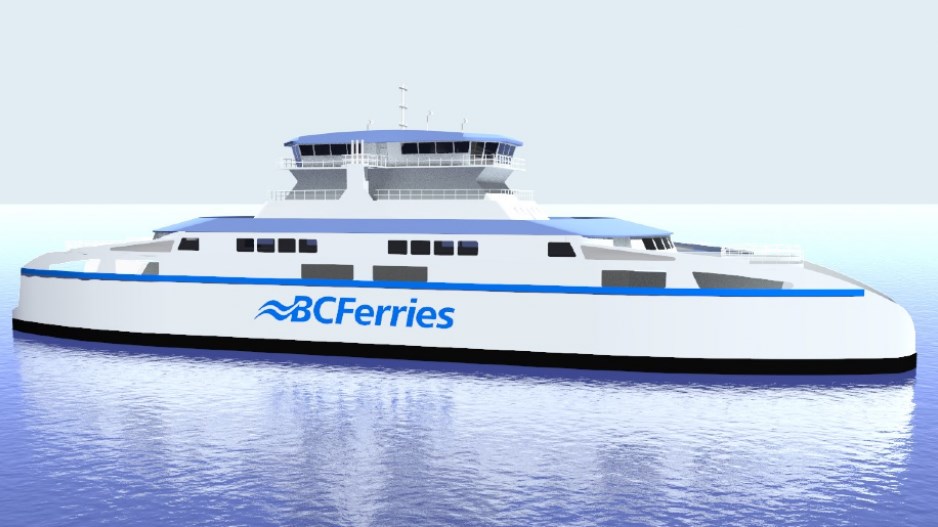The Spirit of Vancouver Island and the Spirit of British Columbia ferries are in line to be converted to run on liquefied natural gas to save $9.2 million in annual fuel costs.
B.C. Ferries announced Monday (September 22) that it is applying to the Ferries Commissioner for permission to go ahead with a dual-fuel system, using LNG and diesel, on its two largest vessels. When converted, the vessels are expected to run largely on lower-cost LNG.
This move follows B.C. Ferries’ decision to order dual-fuel systems on the three intermediate-class ships to be built in Poland. They are scheduled for delivery to B.C. in 2016 and 2017.
“We are well aware that fare affordability is a concern for our customers and operating on LNG, which is approximately 50% cheaper than marine diesel, is a game-changer for B.C. Ferries,” Mike Corrigan, B.C. Ferries president and chief executive officer, said in a statement.
LNG will also bring environmental benefits because it is a cleaner fuel.
The announcement of the dual-fuel plans for the Spirit-class vessels comes in the wake of a new study carried out for the Union of B.C. Municipalities that said that B.C. Ferries has lost millions of riders in the past 10 years due to continuing fare increases.
Pending approval from the commissioner, the Spirit of Vancouver Island will go through its midlife upgrade and conversion between the fall of 2016 and spring 2017.
Work on the Spirit of British Columbia would run from fall 2017 to spring 2018.
Each vessel is anticipated to stay in service 27 years after its upgrade, meaning total fuel cost savings could top $240 million in today’s dollars.
In the past fiscal year, B.C. Ferries spent $126 million on fuel. Of that, the two Spirit-class vessels used about 15%.
The conversion would cut the vessels’ fuel costs by close to half, B.C. Ferries said. Spirit-class vessels carry passengers and vehicles between Swartz Bay and Tsawwassen.
Along with the dual-fuel systems, a number of other improvements are planned to increase cost savings and make the vessels more efficient.




